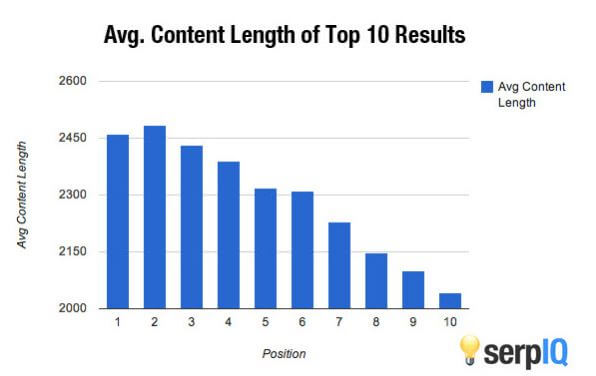How Long Should A Blog Post Be In 2023
Where are you in your blogging journey? No matter if you’re writing as a freelancer, for your blog, or business, you’ve probably asked the question: How long should a blog post be?
You are not alone because many bloggers are still unsure what the ideal length of their blog posts should be. The average blog post length is 1000-2500 words.
This may sound like a lot if you are used to publishing short posts, but there are many benefits of writing long-form articles that will make the process worth it.
And in this article, I will share the advantages of writing lengthy posts and some techniques to use when writing them.
What Is The Ideal Length For A Blog Post
The length of a blog post is different for each blogger, and it can depend on the topic they are writing about. Some bloggers write incredibly long posts that go in-depth on a specific topic.
This will not be an issue if their target audience has enough time to read through these articles.
In contrast, some prefer short blog posts because they want to share just enough information for a reader to understand what they’re describing without going into details.
The difference between a long and a short-form blog boils down to content – both provide valuable information to readers, but if you are trying to get organic traffic from search engines, you should write at least 1500 words.
The Benefits Of Long-form Post
There are benefits to writing long and short blog posts – it depends on what you want to achieve with your content.
However, writing long-form articles is necessary if you want to establish yourself as an authority figure or thought leader in your industry.
People often think that long blog posts can’t be engaging, but that’s not always the case. It is important to keep your readers interested by providing them with valuable information and telling compelling stories.
Let’s now dig deeper into some of the benefits of writing long-form content.
Increase Time Spent On The Page:
The more time your users spend on your site, the better. This is not to say that you can write a bunch of fluff and expect everyone to stay on your site for hours. Instead, it’s about understanding what people want from your blog and how you can deliver it.
If you’re writing about topics that people want to read about, and you’re doing so in a way that’s clear and easy to understand, then people will spend more time on your page. And this can only be achieved by writing lengthy blog posts.
Longer posts give you more space to explain complex ideas and concepts. You can break these concepts up into several sub-topics and explain each one in detail. This way, readers get all of the information they need without looking anywhere else.
If users have questions about a particular topic, they’ll almost always search for answers online. If you’ve got the answers in front of them, then they won’t have any reason to go looking for them elsewhere.
As an added benefit, if you have the answer on your page, anyone searching on Google or another search engine will most likely find your answer there first.
This means that even if they don’t stay very long, they still find what they were looking for.
Improves Search Engine Results:
A blog post is the cornerstone of your content marketing strategy. It’s where you build authority in your industry and establish yourself as a thought leader.
It’s where you get your message out to new prospects and generate leads. And it’s where you provide value to your existing customers and keep them coming back for more.
But not just any blog posts will do. To truly succeed as a blogger, you need to create high-quality content that consistently delivers value to readers.
One of the most effective ways to create high-quality blog posts is to make them longer than average. Longer blog posts rank better on Google, are shared more often on social media, and have a longer shelf life than short ones.
It is because content length gives Google an idea of the depth of your content. If a post is long and detailed, you’re covering all aspects of the topic thoroughly (which is exactly what Google wants).
The more detailed and informative your post is, the better it will rank on Google.
This is backed up by a study carried out by SerpIQ, which showed that the average word count for pages ranking in the top 10 results for any given search was over 2000 words.

Long content can be intimidating, but it isn’t impossible. And with a little bit of planning and research, you can create compelling long-form blog posts that will keep your readers engaged and increase your search engine visibility.
Get More Shares On Social Media:
Writing lengthy posts also means getting more shares on social media platforms. This is because when people see that an article is long, they are more likely to think that it’s valuable and worth reading.
As a result, they will be more likely to share it with their friends and followers.
This was seen in an article done by Quicksporut, which found that posts under 1500 received 174.6 tweets and 59.3 Facebook likes.
In comparison, the average number of shares for articles over 1500 words received over 293.5 tweets and 72.7 Facebook likes.

So if you’re looking to get more engagement on your blog posts, write longer ones instead of shorter ones. You’ll be surprised at how well they do.
Want To Save Money And Do Keyword Research For Free? Then What Are You Waiting For Sign Up For My Free Keyword Research Course And Boost Your Google Ranking!
How To Write Long-Form Blog Posts
As you now know, writing long-form articles has its benefits. Let’s look at how to write them.
Unique Information:
If you are writing about a popular topic such as “How to write an article,” and there are multiple articles on that topic, then your piece must be unique in order to stand out from the rest.
The best way to make sure your content is unique is by doing thorough research before writing it and adding your insights or opinions based on personal experience.
This will make it different from other similar articles written by people who didn’t conduct any research and just copied what they saw online without taking time to think critically about their subject.
Be Specific:
Be specific when writing. Your goal should be to provide clear, actionable advice to help your readers solve their problems or meet their needs.
Writing more on a specific topic increases your chances of engaging your readers and solving their problems.
Do Research And Provide Evidence:
Make sure you do your research before writing your article so you can prove your points. The easiest way to do this is by using links from credible sources, for example, websites such as BBC or Huffington Post.
This will ensure readers that your content isn’t just some random opinion but based on solid facts.
Make It Easy To Understand:
The easier you make it for your reader, the more likely they will finish reading your post and retain the information.
Use subheads, bullet points, and numbered lists as needed to break up large blocks of text and make the information easier to skim, read and digest.
Prove Your Authority:
Before writing the article, it is best to ensure your readers that you have the authority to write about a particular subject.
If applicable, you can do this by linking to the last post you have written or showing off your work in some other places like a portfolio.
Edit Ruthlessly:
This is one of the most important parts of writing longer content. By ruthless editing, I mean taking out anything that doesn’t add value or serve a purpose in your post.
Conclusion
It’s pretty clear that longer content performs better in a number of ways. The ultimate conclusion is to write content that provides value, as that’s the main factor in driving traffic and engagement on your site.
If you can do that, you should be rewarded with performance.
Frequently Asked Questions
Q: How long should a blog title be?
This is how long a blog post title should be: 50-60 characters. Any longer than that, the search engines will cut off your headline.
Q: What is the average length of a blog post?
According to Orbit Media 2021 Blogging Statistics, the average length of a blog post is 1416 now.
- 130+ Real Estate Business Names - July 27, 2024
- 180+ Cake Business Names - July 23, 2024
- How To Start An ATM Business - July 20, 2024

